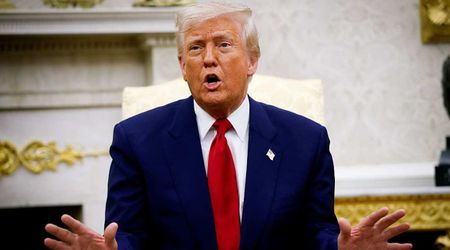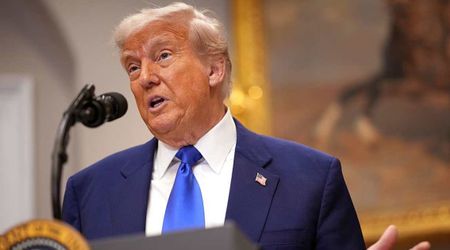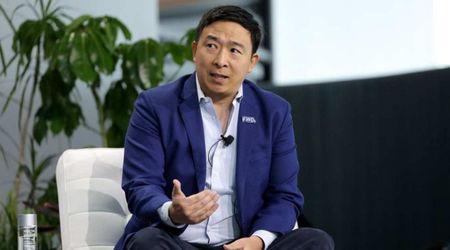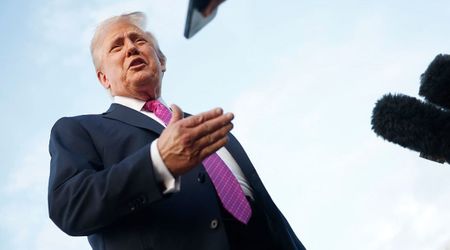Singapore PM Lee Hsien Loong Warns Citizens of Crypto Scams Using His Deepfake Videos

Singapore PM warns about deepfake videos impersonating him for cyrpto scams
Prime Minister of Singapore Lee Hsien Loong recently posted a warning across social media to alert his followers about deepfake videos using his voice and image to promote cryptocurrency scams. On December 28, Loong urged his followers on X (formerly Twitter), LinkedIn, and Facebook not to respond to scammers who use deepfakes of him which claim to give promised “returns on investments” and crypto giveaways. Loong shared a video of a deepfake of himself as well.

“The use of deepfake technology to spread disinformation will continue to grow,” said Loong. “We must remain vigilant and learn to protect ourselves and our loved ones against such scams.”
Recently, there have been a number of audio deepfake videos that use AI technology to mimic my voice to promote crypto scams. If you see or receive these scams promising guaranteed returns on investments or ‘giveaways’, please do not respond to them! – LHL https://t.co/pv1Vl6euAc pic.twitter.com/ogPlEeYWzw
— leehsienloong (@leehsienloong) December 29, 2023
In the video shared by Loong, his deepfake image is seen promoting a fake type of “hands-free crypto trading” and promising guaranteed “returns on investments” and crypto giveaways. In the altered video, Loong’s deepfake was being interviewed by a presenter from Chinese news network CGTN. In the video, Loong claims that the type of crypto trading has “a track record of success”.
Earlier, a similar video of Deputy Prime Minister Lawrence Wong promoting investment scams was also being circulated on social media, according to a report by The Straits Times. In that video, Wong was seen promoting an investment product that will “allow everyone to receive guaranteed monthly dividends with minimal investment”.
History of such scams
Prime Minister Loong has been a target since before the advent of certain AI tools. He issued a similar cautionary message in 2021 as well, asking citizens to remain vigilant when dealing with cryptocurrency platforms as someone had set up a profile on BitClout to sell tokens using fake social media accounts.
Loong along with Wong were also questioned by the lawmakers after the collapse of the crypto trading platform FTX in 2022. Scammers across the globe have been employing various methods to deceive people and steal cryptocurrency or tokens since their inception. Back in 2020, hackers compromised the accounts of prominent Twitter users, including former United States President Barack Obama and President-elect Joe Biden to promote a prominent Bitcoin scam.
Three people have been charged for their alleged involvement in a massive Twitter hack earlier this month that took over the accounts of prominent users like Joe Biden, Barack Obama and Elon Musk and used them to promote a Bitcoin scam https://t.co/0U3I0jQa8n
— CNN International (@cnni) July 31, 2020
Further, in 2021, criminals used advanced deepfake technology to mimic the voice of a director of a company in Hong Kong to carry out a $35 million bank heist. The deepfake voice successfully impersonated the director, leading to a substantial financial loss.
#MONEY #crimesnews: A Deepfake Phone Call Of A Director's Voice Dupes An Employee Into Giving Away $35 Million! Think your #business is too small to be fooled? Think again. This is a real incident happened in early 2020 to a Hong Kong #bank!https://t.co/9vODBjE6ME
— Glory Dey (@GloryDey1) January 24, 2022
In 2022, a deepfake using Elon Musk pushed a crypto scam which resulted in a loss of over $2 million over six months. Embattled Ukrainian President Volodymyr Zelenskyy has also been a victim of deepfakes. His altered videos have been used to spread misinformation ever since Russia invaded Ukraine.
💰🎤Vladimir Zelensky’s deepfake got on the mic to ask for financial aid through music. Intelligence chief Kirill Budanov and top commander Valery Zaluzhny joined him on back vocals for a lovely rendition of Grover Washington Jr’s ‘Just the Two of Us’. pic.twitter.com/PvmYB4Fx5W
— Ignorance, the root and stem of all evil (@ivan_8848) January 2, 2024
Singapore’s efforts

The Singapore government has launched a comprehensive effort to combat scams. Several government agencies are playing different roles in scam prevention, per a SCMP report. The government has also established the National Anti-Scam Centre to improve information sharing across the various agencies and the private sector.
Global scale of frauds and scams
As per a report from Cybersecurity Ventures, cybercrime, including scams cost about $8 trillion in 2023, which is more than the economic output of Japan, the world’s third-largest economy. Further, it is predicted that the cost of cybercrime will reach over $10.5 trillion by 2022. In the case of deepfakes used for scams, the financial losses have ranged from $243,000 to $35 million in individual cases so far.






















